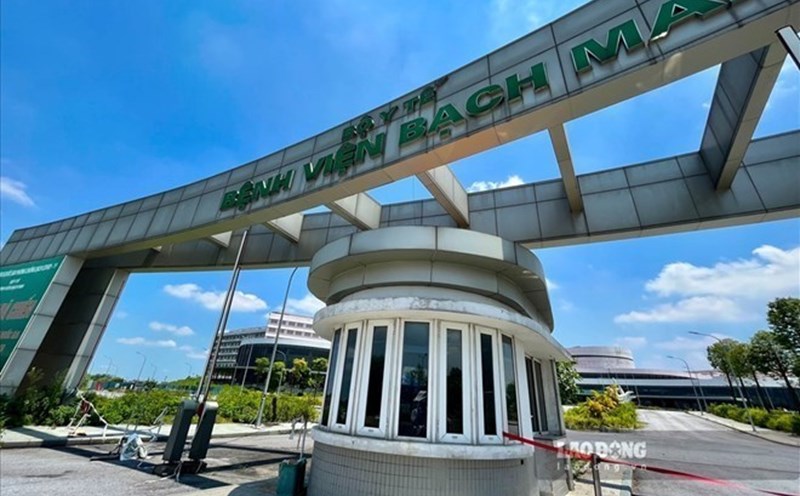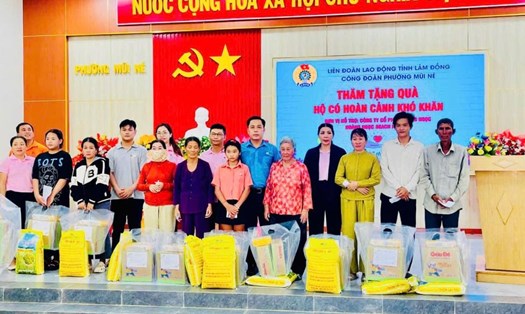At the conference to provide information to the press on human rights and foreign information held at the end of September in Hanoi, Mr. Pham Hong Dao, Deputy Chief of the National Office for Poverty Reduction - Ministry of Agriculture and Environment, provided some noteworthy information on hunger eradication and poverty reduction in Vietnam, contributing to ensuring human rights.
Our Party and State always identify sustainable poverty reduction as one of the major, important, consistent and consistent policies in the process of innovating, building and developing the country in the direction of socialism. The 2013 Constitution affirmed that citizens have the right to social security, the State creates equal opportunities for citizens to enjoy social welfare, has policies to support the elderly, the disabled, the poor and other vulnerable groups. Therefore, poverty reduction is not only an economic and social task but also an essential part to ensure human rights.
In the period of 2021-2025, poverty reduction has achieved many outstanding achievements. The poverty rate will decrease from 5.2% to 1.93% in 2024 and is expected to be only 0.9-1.1% by the end of 2025. In particular, the poverty rate among ethnic minorities has decreased sharply, to 12.55%. This result comes from the strong direction of the Party and State, the participation of the entire political system and the consensus of the people. The awareness of poverty reduction has changed, many households have voluntarily asked to be removed from the list of poor households, becoming typical examples to escape poverty.
In 1998, the poverty rate of the whole country was about 58%, by the end of 2024 it was only 1.93%, and it is expected that by the end of 2025 according to the poverty standard 2021-2025, it will be only about 1%. The international community recognizes Vietnam as one of the countries with the fastest poverty reduction rate, said Mr. Dao.
The Government has issued many comprehensive poverty reduction programs, mechanisms and policies, focusing on vulnerable groups, ethnic minority areas and areas with special difficulties. Vietnam is one of the first countries in Asia to apply the multidimensional poverty standard, not only based on income but also on access to basic social services. The application of the multidimensional poverty standard for the period 2021-2025 has increased the number of poor people benefiting from the policy to 2.3 times, expanding support in many areas such as education, healthcare, housing, domestic water and information.
The emulation movement "For the poor - No one is left behind" has been widely deployed, creating a spreading atmosphere throughout society. People's awareness of poverty reduction has changed, many households have proactively escaped poverty, voluntarily withdrawing from the list of poor households. The Government focuses on innovating the approach and applying the multidimensional poverty standard, considering this an important step forward to both ensure a minimum income and improve access to basic social services.
At the same time, the National Assembly approved the investment policy for the National Target Program on Sustainable Poverty Reduction for the period 2021-2025, focusing on infrastructure development, increasing income, creating jobs and ensuring gender equality. More than 2,600 essential infrastructure works have been built in poor districts and disadvantaged communes, along with more than 10,000 production models to help hundreds of thousands of households have sustainable livelihoods and improve their lives. In particular, the program also focuses on gender mainstreaming, supporting women and girls in poor areas.
However, poverty reduction work still faces many challenges. Some midland, mountainous areas in the North and Central Highlands still have high poverty rates, some places over 50%. Many localities lack essential infrastructure, difficulty in implementing policies, leading to the risk of falling back into poverty. The application of information technology in supervision is not synchronous, along with the situation where grassroots cadres are limited in capacity, affecting the effectiveness of the program.
"There is still a situation where a few people refuse to escape poverty and want to be poor forever, because they think, 'Why do we have to work when the government gives us money to eat and drink'. This is also a difficulty for policy-making agencies, it is necessary to design them to change their awareness thinking, Mr. Dao informed.










